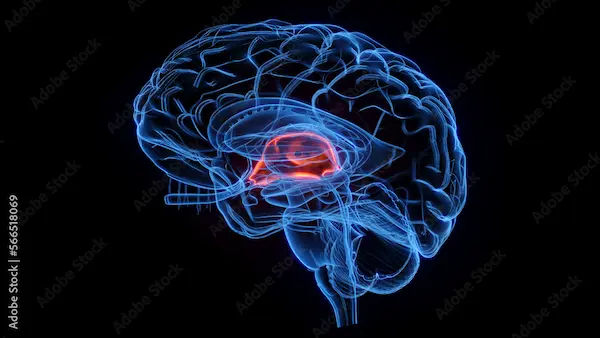Hydronephrosis Overview: Symptoms and Treatment

Written by Dr. Dhankecha Mayank Dineshbhai
Reviewed by Dr. Shaik Abdul Kalam MD (Physician)
Last updated on 13th Jan, 2026

Hydronephrosis is a condition where one or both kidneys swell due to a buildup of urine. This happens when urine cannot drain properly from the kidney to the bladder, causing pressure and potential damage over time. While it can affect people of all ages, including newborns, early detection and treatment can prevent complications.
In this article, we’ll discuss the symptoms, causes, and treatment options for hydronephrosis in simple terms. We’ll also share some helpful tips to manage the condition and when to seek medical help.
What Are the Symptoms of Hydronephrosis?
Hydronephrosis may not always cause noticeable symptoms, especially in mild cases. However, when symptoms do appear, they may include:
- Pain in the side or back (often on one side)
- Frequent urination or difficulty urinating
- Burning sensation while urinating
- Nausea or vomiting (if pain is severe)
- Fever or chills (if an infection is present)
- Blood in urine (in some cases)
In infants, symptoms may include:
- Swollen belly
- Unexplained fussiness
- Poor feeding
If you or your child experience any of these symptoms, it’s important to consult a doctor for proper diagnosis.
What Causes Hydronephrosis?
Hydronephrosis occurs when urine flow is blocked or slowed down. Some common causes include:
1. Kidney Stones
Small, hard deposits can block the ureter (the tube connecting the kidney to the bladder), leading to swelling.
2. Enlarged Prostate (in Men)
An enlarged prostate can press against the urethra, slowing urine flow.
3. Urinary Tract Infections (UTIs)
Severe infections can cause swelling and blockages.
4. Pregnancy
The growing uterus may press on the ureters, affecting urine drainage.
5. Birth Defects (in Babies)
Some infants are born with narrow or blocked ureters, leading to hydronephrosis.
6. Tumors or Scarring
Growths or scar tissue in the urinary tract can obstruct urine flow. Identifying the underlying cause is crucial for proper treatment.
How Is Hydronephrosis Diagnosed?
Doctors use different tests to confirm hydronephrosis and find its cause:
- Ultrasound – A painless imaging test to check kidney swelling.
- CT Scan or MRI – Provides detailed images of the urinary tract.
- Blood & Urine Tests – Helps detect infections or kidney function issues.
- Cystoscopy – A thin tube with a camera checks the bladder and urethra.
If you suspect hydronephrosis, booking a consultation with a specialist can help determine the best course of action.
Get Your Health Assessed
Treatment Options for Hydronephrosis
Treatment depends on the cause and severity of the condition.
1. Mild Cases (Watchful Waiting)
If hydronephrosis is mild and not causing symptoms, doctors may monitor it without immediate treatment.
2. Medications
- Antibiotics – If an infection is present.
- Pain Relievers – To manage discomfort.
3. Surgical Treatments
- Stent Placement – A small tube is inserted to keep the ureter open.
- Nephrostomy Tube – Drains urine directly from the kidney.
- Surgery – To remove blockages (like kidney stones or tumors).
4. Lifestyle Changes
- Drink plenty of water to help flush out the kidneys.
- Avoid excessive salt to reduce kidney strain.
- Treat UTIs promptly to prevent complications.
For severe cases, early intervention can prevent permanent kidney damage.
When to See a Doctor?
Seek medical help if you experience:
- Severe pain in the side or back
- Difficulty urinating
- Blood in urine
- High fever with chills
If you’re unsure, booking a quick online consultation with a urologist can provide clarity.
Final Thoughts
Hydronephrosis is a manageable condition if detected early. While some cases resolve on their own, others may need medical treatment. Staying hydrated, maintaining a healthy diet, and seeking timely care can help protect your kidneys.
If you suspect hydronephrosis or have persistent symptoms, don’t hesitate to reach out to a healthcare provider. Early diagnosis and treatment can make a big difference in recovery.
Need expert advice? You can schedule a consultation or diagnostic test through Apollo 24|7 for personalized care.
Consult a Specialist for Personalised Advice
Consult a Specialist for Personalised Advice

Dr. Joydeep Biswas
Neurologist
15 Years • MBBS, DNB General Medicine, DNB Neurology
Barasat
Diab-Eat-Ease, Barasat

Dr. Uddalak Chakraborty
Neurologist
8 Years • MBBS, MD(GENL.MED.),DM(NEUROLOGY)
Kolkata
MCR SUPER SPECIALITY POLY CLINIC & PATHOLOGY, Kolkata

Dr. Uddalak Chakraborty
Neurologist
8 Years • MBBS,MD(GENL. MED.),DM(NEUROLOGY)
Kolkata
VDC Clinic, Kolkata
(25+ Patients)

Dr. Aditendraditya Singh Bhati
Neurosurgeon
21 Years • MBBS(2004), DNB Neurosurgery(2014); MNAMS; Fellow Skull Base Endoscopy (Italy), Fellow Extended Skull Base ( Weill Cornell, USA), Fellow ZAP-X Radiosurgery. Member of American Association of Neurological Surgeons
Delhi
Apollo Hospitals Indraprastha, Delhi
(100+ Patients)

Dr. Ganeshgouda Majigoudra
Neurologist
10 Years • MBBS, MD ( GENERAL MEDICINE) DM (NEUROLOGY)
Bengaluru
Apollo Clinic, JP nagar, Bengaluru


